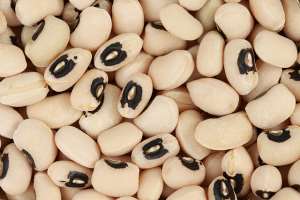
Local and international researchers and farmers have begun a pilot project on the planting of genetically modified cowpea seeds in the country.
The pilot project, being executed in Tamale in the Northern Region, is the outcome of a research which indicates that Ghana's land is fertile for the growth of genetically modified cowpea seeds.
The project will be extended to other ecological areas in the country by the end of the year.
Dr King David Amoah, a member of the Ghana Federation of Agricultural Producers (GFAP), made this known at a sensitisation workshop organised for farmers at Akuse.
The workshop was organised on the theme: 'Adopting the Maruka resistant cowpea variety'.
Dr Amoah, however, indicated that the country needed to enact regulatory laws through a regulatory authority before the seeds could be used by farmers on a large scale.
He advised farmers to adopt the use of genetically modified cowpea seeds when introduced into the country in 2018.
The farmers have also been counselled to join agriculture-based organisations in order to have a comprehensive bargaining front.
Dr Amoah endorsed the use of the Maruka Resistant Cowpea seed in Ghana and further expressed his optimism of the success of the yet-to-be introduced genetically modified seed.
Mr John Dziwornu, member of the Ghana Federation of Agriculture Producers, in his address, explained that the Maruka cowpea seed had the capacity to fight external pests and insects.
He said the seed, which would be introduced in 2018, would ensure an increase in production, improved nutrition, enhanced soil fertility and an increase in income.
Mr Dziwornu said the development and introduction of the Maruka Resistant Cowpea seed was as a result of thorough research.
'The local conditions in the agricultural sector were factored into the creation of the new seed. This makes the seed compatible with the prevailing conditions of the agricultural sector such as the soil and the temperature', he added.
Mrs Lydia Sasu, formerly of the Food and Agriculture Organisation, who chaired the function, advised the youth to enter into the agricultural sector as farming in Ghana was a lucrative venture.
By Franklin Badu Jnr/Daily Graphic/Ghana




 Akufo-Addo commissions Phase II of Kaleo solar power plant
Akufo-Addo commissions Phase II of Kaleo solar power plant
 NDC panics over Bawumia’s visit to Pope Francis
NDC panics over Bawumia’s visit to Pope Francis
 EC blasts Mahama over “false” claims on recruitment of Returning Officers
EC blasts Mahama over “false” claims on recruitment of Returning Officers
 Lands Minister gives ultimatum to Future Global Resources to revamp Prestea/Bogo...
Lands Minister gives ultimatum to Future Global Resources to revamp Prestea/Bogo...
 Wa Naa appeals to Akufo-Addo to audit state lands in Wa
Wa Naa appeals to Akufo-Addo to audit state lands in Wa
 Prof Opoku-Agyemang misunderstood Bawumia’s ‘driver mate’ analogy – Miracles Abo...
Prof Opoku-Agyemang misunderstood Bawumia’s ‘driver mate’ analogy – Miracles Abo...
 EU confident Ghana will not sign Anti-LGBTQI Bill
EU confident Ghana will not sign Anti-LGBTQI Bill
 Suspend implementation of Planting for Food and Jobs for 2024 - Stakeholders
Suspend implementation of Planting for Food and Jobs for 2024 - Stakeholders
 Tema West Municipal Assembly gets Ghana's First Female Aircraft Marshaller as ne...
Tema West Municipal Assembly gets Ghana's First Female Aircraft Marshaller as ne...
 Dumsor is affecting us double, release timetable – Disability Federation to ECG
Dumsor is affecting us double, release timetable – Disability Federation to ECG
